
-
Find the right food for your petTake this quiz to see which food may be the best for your furry friend.Find the right food for your petTake this quiz to see which food may be the best for your furry friend.Featured products
 Perfect Weight Small & Mini Adult Dog Food
Perfect Weight Small & Mini Adult Dog FoodHill's Science Plan Adult Small & Mini Dog Food with Turkey is a complete premium pet food for adult small dogs from 1 year old that are prone to weight gain or slightly overweight. This deliciously smooth mousse is formulated to deliver the appropriate amount of energy to support weight maintenance in adult dogs.
Shop Now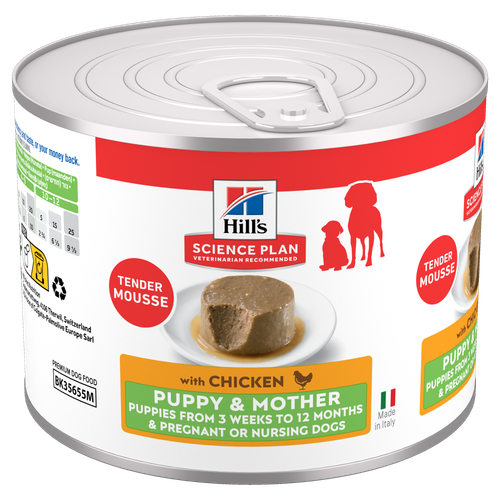 Puppy & Mother Tender Mousse Dog Food
Puppy & Mother Tender Mousse Dog FoodHill's Science Plan Puppy & Mother Tender Mousse Dog Food with Chicken is a complete premium pet food for puppies and pregnant or nursing dogs. Formulated with chicken and other specially selected ingredients, including minerals and antioxidants to support gut health and optimal growth, it comes in a soft mousse texture they'll love.
Shop Now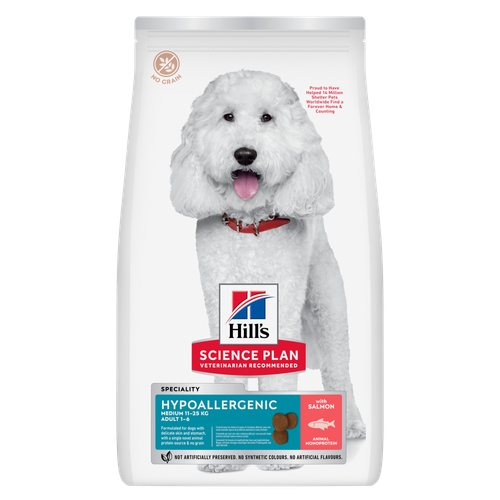 Hypoallergenic Medium Adult Dog Food
Hypoallergenic Medium Adult Dog FoodScience Plan Hypoallergenic Medium Adult dog food with Salmon is a gentle, science-led formula crafted for dogs with food sensitivities. Made with carefully selected, high-quality novel proteins and no grains, it’s tailored to minimise common triggers that can lead to skin and digestive discomfort.
Shop NowFeatured products Hypoallergenic Dry Cat Food
Hypoallergenic Dry Cat FoodHILL'S SCIENCE PLAN Hypoallergenic Adult cat food with egg & insect protein is a complete pet food for adult cat 1–6 years old. It's formulated for cats with delicate skin and stomach, with limited high quality novel protein sources & no grain.
Shop Now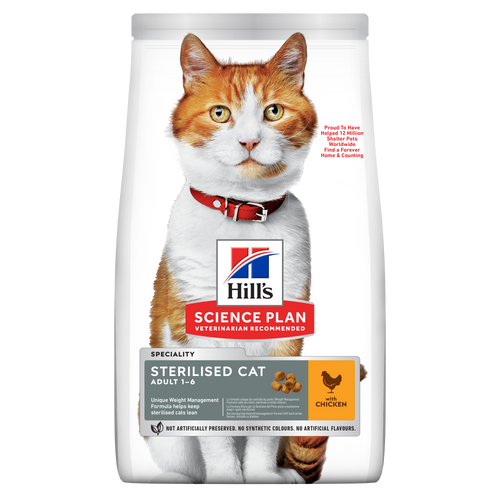 Sterilised Adult Cat Food
Sterilised Adult Cat FoodHill's Science Plan Adult Sterilised Cat Dry Food with Chicken is specially formulated with ActivBiome+ Multi-Benefit Technology. It is a precisely balanced nutrition, tailored to meet the needs of sterilised cats, to help keep sthem lean & healthy.
Shop Now Oral Care Adult Cat Food
Oral Care Adult Cat FoodHill's Science Plan Oral Care Adult Cat Food with Chicken contains clinically proven kibble technology to reduce plaque & tartar build up.
Shop Now -
Dog
- Dog Tips & Articles
-
Health Category
- Weight
- Food & Environmental Sensitivities
- Urinary
- Digestive
- Joint
- Kidney
-
Life Stage
- Puppy Nutrition
- Adult Nutrition
- Senior Nutrition
Cat- Cat Tips & Articles
-
Health Category
- Weight
- Skin & Food Sensitivities
- Urinary
- Digestive
- Kidney
-
Life Stage
- Kitten Nutrition
- Adult Nutrition
Featured articles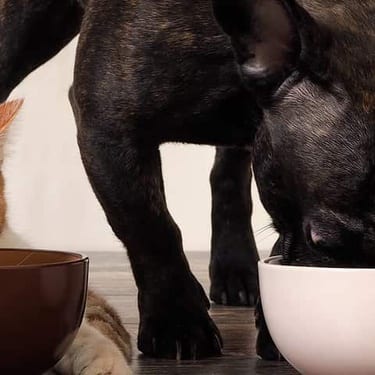 Pet Supply Storage: 8 Upcycling Crafts for Bags and Cans
Pet Supply Storage: 8 Upcycling Crafts for Bags and CansGet helpful hints and tips on how to creatively upcycle your pet's food bags and cans, helping to reduce waste and give your home some visual flair.
Read MoreTips for Working From Home With a PetGet helpful information on how to get all of your work done while keeping your dog or cat entertained when working from home.
Read More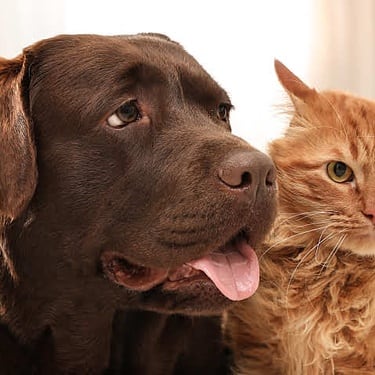 What Cleaning Products Are Safe for Pets?
What Cleaning Products Are Safe for Pets?Learn which cleaning product ingredients can be hazardous for dogs & cats, which alternatives are safer and tips for using cleaning products around pets.
Read More -


Like people, cats can get constipated from time to time, and it’s not pleasant for us or them. It can be tricky to spot if your cat has a tummy upset or intestinal problem, especially if they go outside to go to the toilet, but there are usually some telltale signs you can look out for.
What is constipation?
Constipation is basically the opposite of diarrhoea. The poo gets dried out, hard and difficult to pass. This can be very uncomfortable and, if it goes on for some days, it can make cats feel really unwell and miserable.


Tasty Tips
Common causes of constipation in cats
Cats are usually pretty low-maintenance pets, but there are several things that can cause constipation. Let’s look at what those things might be and how to spot when it’s an issue.
Dehydration. Cats have evolved from ancestors that live in hot, desert-type places, so they’re very good at conserving the water in their bodies. This means they tend not to drink very much, which can lead to dehydration and dryer stools.
This is even more likely to happen in situations like a multi-cat house, where one cat might not have equal access to the food and water due to a resident bully. To make sure your cat stays hydrated, place several water bowls around the house so that they have water freely available wherever they are. At a minimum, ensure that there is one more water bowl than the number of cats in the home.
Lots of cats are fed dry food for convenience these days, which can reduce their normal water intake. Feeding wet food, such as pouches and tins, is a great way to ensure your cat gets plenty of fluids.
Swallowing hair. Cats love to groom and spend about 30-40% of their waking time tending to this important job. While some cats that ingest a lot of hair might vomit up a furball or two, some hair may go all the way through and clog up the other end.
Injuries and pain. Injuries such as pelvic fractures may physically narrow the passage where the large bowel sits, making it difficult for the cat to pass stools. Also, as cats get older and their joints get stiffer, they may find that squatting is painful. They might avoid going to the toilet as often, allowing the poo to dry out too much.
Tumours. Some tumours in the bowel area can block stools from passing through, either by pressing up against the bowel from the outside, or taking up space inside.
Nerve problems. The contents of the intestines are moved from one end to the other by waves of muscular contractions called peristalsis. It happens automatically, without us ever having to think about it. Some cats get nerve problems that might hinder this. Some breeds of cat, such as the Siamese, are more prone to this. It can cause something called megacolon, where the colon becomes very slack and dilated.
Other diseases. Some other diseases, such as kidney disease, can cause dehydration, which can then lead to constipation.
Obesity and lack of exercise. Obesity and lack of exercise can cause constipation because exercise stimulates the bowel to move.
How do you know when your cat is constipated?
It might not alway be easy to tell if your cat’s digestive system isn’t working the way it should. Vomiting and diarrhoea are obvious, but constipation can be much harder to spot.
Things to look out for:
If your cat uses a litter tray, watch for changes in frequency and consistency. If you notice you suddenly don’t have to empty the tray as much, or if the stools seem different in size or appearance (hard or crumbly), it could be a sign that things are backing up.
Watch for straining or vocalisation. If your cat seems to be crying out or spending ages in the tray without success, then you should see your vet as soon as possible. This could be a sign of constipation that needs addressing, but it can also be a sign of cystitis or a blocked bladder, which are medical emergencies.
Watch for your cat pooing in the wrong place. If your cat is in pain or finding the litter tray difficult, or is reluctant to go outside to poop, they may be constipated.
General malaise. Constipation makes cats feel pretty miserable, just like us. Sometimes, the only sign of your cat being constipated is that they seem off-colour. They may seem lethargic and uninterested in play or company.
Hopefully, your cat will sail through life with happy bowels, but if you’re ever concerned there might be a problem, always talk to your vet. They would much rather be on the safe side and catch a problem before it gets too bad. It might be that a simple change of food is needed to give your cat more fibre or more moisture, but if there is an underlying disease, the sooner you find out, the better.
Reviewed by Dr. Hein Meyer, DVM, PhD, Dipl-ECVIM-CA


One of our staff authors prepared this article for you
Related products
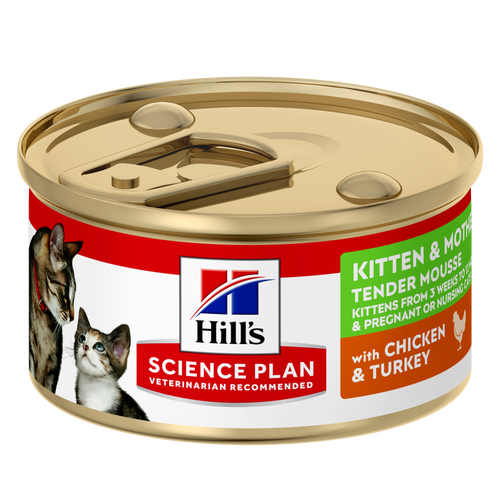
Hill's Science Plan Kitten & Mother Tender Mousse Cat Food with Chicken & Turkey is a complete premium pet food for kittens from weaning until 1 year old and for pregnant and nursing cats. Formulated with chicken, turkey and other specially selected ingredients to support gut health and optimal growth. It comes in a soft mousse texture they'll love.

HILL'S SCIENCE PLAN Hypoallergenic Adult cat food with egg & insect protein is a complete pet food for adult cat 1–6 years old. It's formulated for cats with delicate skin and stomach, with limited high quality novel protein sources & no grain.

Hill's Science Plan Oral Care Adult Cat Food with Chicken contains clinically proven kibble technology to reduce plaque & tartar build up.

Hill's Science Plan Adult Sterilised Cat Dry Food with Chicken is specially formulated with ActivBiome+ Multi-Benefit Technology. It is a precisely balanced nutrition, tailored to meet the needs of sterilised cats, to help keep sthem lean & healthy.
Related articles
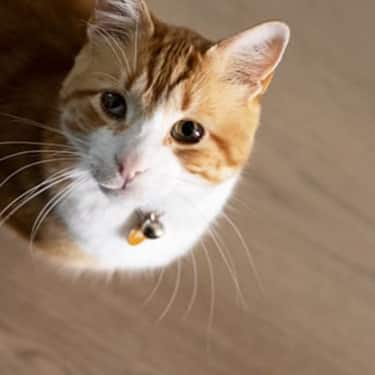
Learn how to spot the signs of a skin condition in your cat and the steps to take for their wellbeing. For comprehensive care advice, visit Hill's Pet.
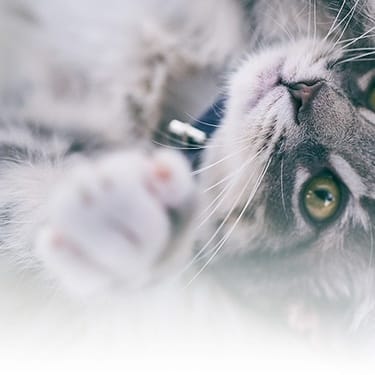
South African vets say more than half the patients they see are overweight. Learn more about managing your cat’s weight.
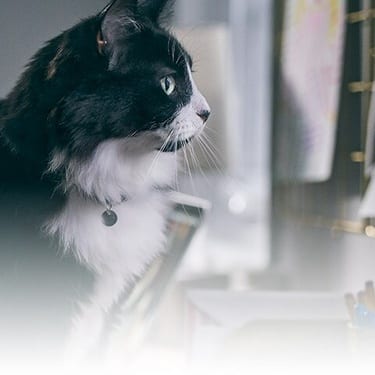
While hairballs are a common occurrence of cats, there are steps you can take to help them manage their problem and keep them healthy.
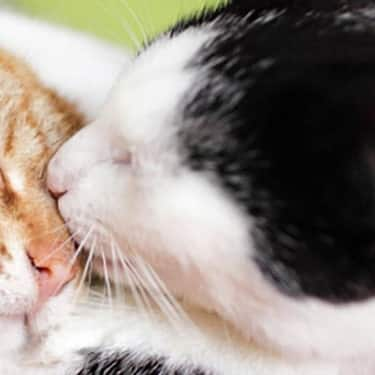
Learn the different factors that might be contributing to your cat's weight gain, and how bigger doesn't always mean better.

Put your cat on a diet without them knowing
Our low calorie formula helps you control your cat's weight. It's packed with high-quality protein for building lean muscles, and made with purposeful ingredients for a flavorful, nutritious meal. Clinically proven antioxidants, Vitamin C+E, help promote a healthy immune system.
Put your cat on a diet without them knowing
Our low calorie formula helps you control your cat's weight. It's packed with high-quality protein for building lean muscles, and made with purposeful ingredients for a flavorful, nutritious meal. Clinically proven antioxidants, Vitamin C+E, help promote a healthy immune system.

